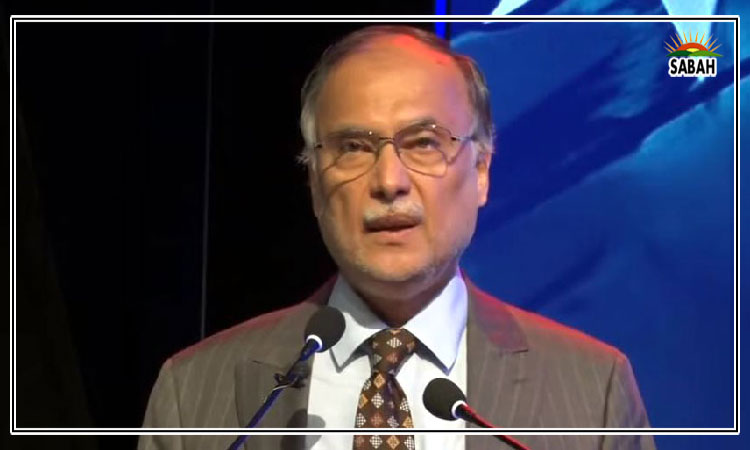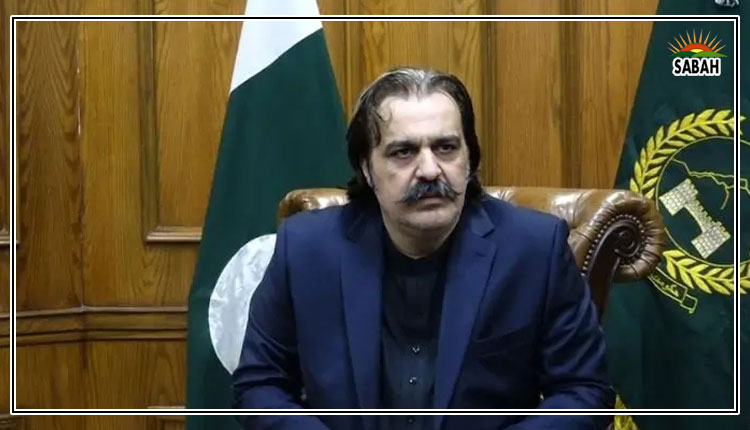Not personal assets….Ammar Ather Saeed | Summaiya Zaidi
AS public servants, we have a duty to uphold the highest standards of integrity, and that includes being transparent about any gifts we receive, said Justin Trudeau, prime minister of Canada.
Ironically, 10,584 kilometres away in Pakistan, it was only on the directions of the Lahore High Court that a religiously guarded state secret, ie, the record of Toshakhana gifts, was made public. The case had in fact reached the Lahore High Court through Right to Information (RTI) requests filed by two parties: in 2020 by a journalist Rana Khalid, and in 2021 by the Public Interest Law Association of Pakistan (PILAP).
These RTIs were the tools used for government accountability, which eventually revealed that many prominent public office holders had enriched themselves through acquisition of expensive gifts during their time in office. These gifts are government treasures received by virtue of the position held by the recipient and are not personal assets. The release of this record caused a public outcry, with many people calling for greater accountability in the conduct of government officials.
During all this political uproar for transparency, one thing that has escaped attention is the tax treatment of these gifts which have been retained by the public officials by paying a negligible amount as consideration. These public officials are employees of the government, and in consideration of their services they draw a salary along with a number of perquisites, which are mostly taxable under the Income Tax Ordinance, 2001.
The tax treatment of Toshakhana gifts has escaped scrutiny.
Any salary and perquisite received, whether or not convertible to money, by an employee from its employer is taxable under Section 12 of the ordinance, and Section 13 provides the mechanism to determine the value of perquisites. Under Section 13(11), if any asset is transferred by the employer to an employee, the amount chargeable to tax also includes the fair market value of the asset determined as per Section 68 of the ordinance. Section 68 clearly provides that the fair market value of any asset is the value that it would ordinarily fetch on sale or supply in the open market at that time.
From a legal standpoint, the government should have performed a few tasks: firstly, calculated the fair market value of the assets acquired by the public officials from the Toshakhana; secondly, reduced the fair market value by the minimal amount paid by the public officials to acquire the asset; and thirdly, added it to the salary of the public officials. These three steps would lead to the final task of calculating the amount of tax that the government, as the withholding agent, should have deducted under Section 149 of the ordinance from the salary, inclusive of the value of the perquisite acquired.
This leads us to three questions: the first, whether or not the government undertook the exercise of determining the fair market value of the asset in accordance with the dictates of the ordinance; second, whether or not additional tax was withheld from the salary of the public officials at the time they acquired the assets from the Toshakhana; and third, whether the public officials, in cases where no tax was deducted by the government on the assets acquired from the Toshakhana, voluntarily discharged their tax liability.
If the same has not been done by either the government or public officials on their own, then there has been a serious breach of the tax laws, not to mention a moral and ethical breach. Such actions have resulted in serious loss to the public exchequer, especially at times where the country desperately needs revenue. Public officials who feast on the public office need to be held accountable.
Therefore, it is now incumbent upon the Federal Board of Revenue to initiate action immediately as per Section 122(5) of the Ordinance, which authorises the FBR to amend the tax returns of the taxpayer on the basis of definite information that they have acquired. In this specific case, the definite information that FBR would have acquired would have been through the release of the data of the Toshakhana on the directions of the Lahore High Court.
PILAP has already filed another RTI request asking this very question: have income tax recoveries been initiated against assets acquired by public officials? All said and done, it is unfortunate that a country like ours, which is in dire financial straits, is being administered and ruled over by classes of individuals who use these assets of the Toshakhana, granted to the Pakistani people, as their personal treasure. The duty is on the regulatory bodies to stand up and play their legal part in the accountability of this outlandish abuse of public authority.
Ammar Ather Saeed is an advocate of the Supreme Court.
Summaiya Zaidi is a legal historian.
Courtesy Dawn, April 2nd, 2023












